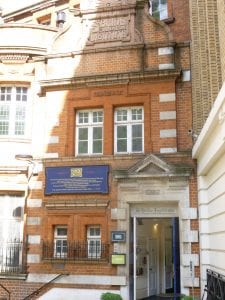Project update – join us at the Bentham Hackathon with IBM
By uczwlse, on 23 August 2017
We’re here with news of an exciting event which will take place in October 2017. UCL have teamed up with the technology company IBM to organise a ‘Bentham Hackathon‘, where participants can work together to explore how digital tools can help us to research Bentham’s philosophy.
For anyone unfamilar with the term, a hackathon is portmanteau of the words ‘hack’ and ‘marathon’. It originally referred to an intensive meeting where groups of computer developers collaborated on software projects. The meaning of a hackathon has now expanded and is often applied to cultural or educational events with a technical element, which are designed to generate new ideas and collaborations. For more on hackathons, have a look at Wikipedia or the useful ‘How to Guide for hackathons in the cultural sector’ produced by the Europeana Space project.
The Bentham Hackathon will take place over the weekend of 20-22 October 2017 at UCL BaseKX. The Bentham Project, in association with UCL Centre for Digital Humanities and UCL Innovation and Enterprise, will be working with IBM to explore the following question:
How can digital technologies help us to research Bentham’s philosophy?
The Bentham Hackathon is an intriguing opportunity for participants to play around with thousands upon thousands of images, transcripts and texts of Bentham’s writings, many of which have been produced in the course of the Transcribe Bentham crowdsourcing initiative. Let’s see how these amazing resources can be explored and analysed with IBM’s cutting-edge technologies!
We have set four suggested challenges for participants in the Hackathon to work on – although other ideas may emerge in the course of the event.
- How can we use keyword searching to explore Bentham’s writings?
- Can we use technology to decipher Bentham’s difficult handwriting?
- Can we build a user-friendly interface for navigating and transcribing documents?
- Can we build a more user-friendly version of the Transcribe Bentham crowdsourcing platform?
Anyone interested in these questions is very welcome to join us at the Bentham Hackathon. The Hackathon is a free event and there are no pre-requisites for participation.
For technical types, this is a great chance to work with IBM and learn new skills. Those interested in history, philosophy and Bentham can also give their input to help ensure that digital tools work to enhance learning and research in the humanities. Any Transcribe Bentham volunteers who are close to London might also find the event interesting – your knowledge of Bentham and the process of transcription would be invaluable!
The Hackathon will last for the weekend, starting with an evening presentation on Friday 20 October. Catering will be provided and participants can get involved in the whole weekend, or just pop in for a while.
The Bentham Hackathon will help us to showcase Bentham’s enormous contribution to philosophical thought, including the way in which his ideas on education inspired the founders of UCL. And we are hopeful that the innovations developed over the course of this weekend will suggest some new ways to use digital technologies in humanities research.
For more information, check out the Bentham Hackathon webpage or contact us.
 Close
Close



